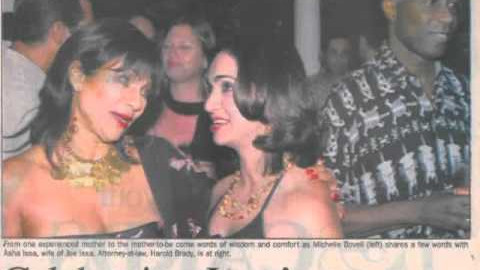The 1988 valedictorian, Joseph J. Issa of Kingston, Jamaica, became the 11th member of his family to earn a degree at Holy Cross. He also became the first international student and the first economics/accounting major to be honored with the role of valedictorian, selected by the Commencement Committee from among 30 of the highest ranked students who competed for the honor.
A member of several honor societies, including Phi Beta Kappa, Issa also was selected by the Massachusetts Society of Certified Public Accountants as the most outstanding junior accounting student at Holy Cross.
As an honors student, he wrote his thesis on the “boom/bust” cycle inherent in the Caribbean tourist industry. Issa spent his junior year at the London School of Economics, where he spearheaded the fund-raising program, “Educate the Children,” an annual program that purchases books for school children in Jamaica and other Caribbean islands.
Crusaders among the Issa clan include his grandfather and granduncle who attended in the 1920s; two uncles who graduated in the 1950s, Richard and Francis; his father John J. ’60; his cousin, Christopher ’78; and his twin sisters Muna and Zein of the class of 1989.

Following are excerpts of Issa’s address:
We are the Class of ’88 children of baby-boomers. We bubble with dynamic energy and talent which awaits to be let loose on the world. Holy Cross can no longer contain us as we burst at its seams waiting for the right moment – a moment that is almost here.
We are thankful to our parents’ generation for making our life at Holy Cross, as well as in the world, easier. No longer do we trek in the damp and cold to church every morning at 7 a.m., no longer do we sit on cold, tough, wooden benches in Kimball. No longer do we wear jacket and tie or cut our hair short. No longer do we have six courses and “lights out,” at 10 p.m. No longer do we say “he” when we speak of the Holy Cross student, who now comes in female as well as male varieties.
Even though much had changed at Holy Cross before we got here, sometimes the Crusader’s tendency to think too quickly in stereotypes had not. I received my roommate’s name and address late in the summer of ’84. “Quinn”, said my father. “That’s an Irish name.” I had signed up for a non-smoking roommate so my dad said “Must be a jock,” and I agreed. Little did I know that most Holy Cross students don’t smoke cigarettes and not all people with an Irish name like Quinn are jocks. As for my roommate – he figured living with a black Jamaica with his hair in dread-locks who smoked weed all the time. You should have seen his face, and his parents’, when he opened the door.
We have learned so much about our differences. When four years ago a fellow student asked, “What kind of transport do you have in Jamaica?” what could I say? “Well, we have horses and buggies. At the intersection the policeman stands and holds up a green apple for go, a red apple for stop, and an orange for proceed with caution.” What’s worse is, he fell for it! Americans seemed so ignorant; of course, I eventually realized that Vermont was a state, not a ski-lodge. I guess ignorance is an aspect of the human, not just the American condition.
Our world is far from being free of racism. The South African problem rings loudly in our ears. The beatings are daily, the injustice is sickening. An oppressed people cry out for freedom. What are we going to do? Do we support economic sanctions? Do we buy products from companies which have subsidiaries in South Africa? Do we join demonstrations? Are we going to stand back and have someone else solve the problem or are we going to get involved ourselves? And will we be brave enough to confront the less obvious racism we face in our daily lives?
Remember being asked, “What does your dad do?” and, “Does your mum work?” The true indicator of some people’s value-systems came with the question, “What kind of car does your dad drive?” Does it matter? Does it change who I am? If we lose our BMWs, our computers, our standards of living, surely we will still have our ideas and self-esteem? Change cannot take these away from us, but change is inevitable.
We have been living on extended credit too long. How do we respond to a reduction in privilege? Will we share our reduced wealth? Will we be crushed or will we be ready to persevere and conquer as we, the Class of ’88, meet the new century at the height of our economic and social power?
Source: The Crossroads






